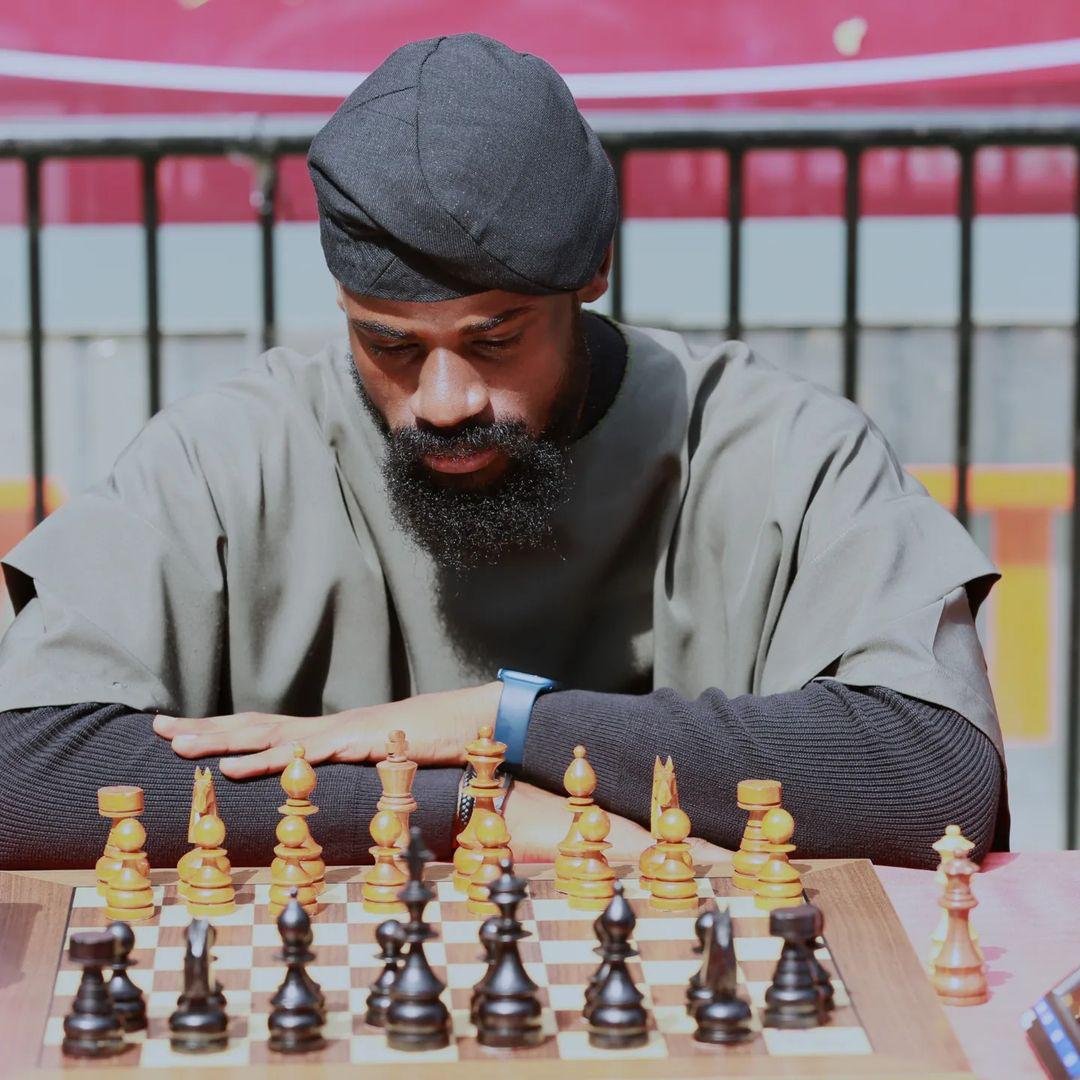On 29 April 2024, a new record entered the annals of the Guinness World Record. In the heart of Times Square, Tunde Onakoya, a young Nigerian chess prodigy, completed the longest game of chess ever played. For 60 hours, this young prodigy challenged the limits of the game for a noble cause: to raise one million dollars for the education of children across Africa. But far beyond this record, Tunde's story is one of extraordinary resilience, a consuming passion for chess, and an unwavering commitment to disadvantaged youth. At the age of 30, Tunde is much more than a chess champion; he is a mentor, an educator and a role model for thousands of young people who, like him, have grown up in poverty. His story began on the streets of Lagos, but its impact now resonates across the continent.
A childhood marked by precariousness and determination
Born on 6 October 1994 in Ikorodu, Lagos, Tunde Onakoya grew up in an environment where access to education was a luxury. From an early age, he was confronted with the harsh realities of life in a deprived neighbourhood, where survival often depended on small jobs and expedients. His father, unable to finance his education, took him out of school at the age of ten, forcing him to contribute to the family income by helping his mother sell fruit. But the young boy never gave up on his dream of going back to school.
One day, his mother, determined to give her son a better life, took a bold decision. She went to a nearby college and offered her services as a cleaner in exchange for her son's enrolment at the school. Thanks to this sacrifice, Onakoya was able to resume his studies after a two-year break. His mother's gesture was the first sign of the resilience that characterises his life today.
Tunde Onakoya discovers chess
It was during these two years away from school that Tunde discovered chess, a game that was to change the course of his life. His first encounter with this complex game came unexpectedly, in a local hairdressing salon. The owner, Mr Bros, a chess enthusiast, introduced the game not just as entertainment, but as a tool for developing intellect and discipline. For Onakoya, chess became a refuge, an activity where he could distinguish himself despite the challenges he faced.
His passion for chess led him to take part in local tournaments. He quickly established a reputation as a talented player, winning major competitions and scholarships. This enabled him to enter the Yaba College of Technology, where he obtained a degree in computer science while continuing to excel at chess.
Chess, a springboard to success
Tunde's career in the world of chess is littered with successes. Among other honours, he won the gold medal at the Nigerian Polytechnic Games, as well as the RCCG Chess Championship. His determination and perseverance led him to be ranked 13th chess player in Nigeria, a remarkable achievement given his humble beginnings. At just 20, he was crowned National Chess Master, a recognition of his talent and hard work.
Despite his successes, the Nigerian always kept in mind the importance of giving back to the community. He knew that failure had given him opportunities that many other children in his neighbourhood had never had the chance to enjoy. It was this realisation that gave rise to the idea of creating an initiative to help disadvantaged children through the game of chess.

Chess in Slums Africa: a hopeful initiative
In September 2018, Tunde founded Chess in Slums Africaa non-governmental organisation dedicated to the education and emancipation of slum children, using chess as a lever for personal development and social inclusion. This initiative was born out of his desire to give other children the same opportunities that he had been offered through the game.
The project began in the slums of Lagos, where it organised educational programmes to teach chess to children from disadvantaged backgrounds. The aim of Chess in Slums Africa is simple: to use the game to develop the critical thinking, discipline and self-esteem of the young participants, while improving their reading and writing skills.
In six years, Chess in Slums Africa has reached over 1,000 children in eleven African countries, including Nigeria, Kenya and Uganda. Twenty of them have received full scholarships, giving them a path to a brighter future. These children, once invisible and marginalised, now have the opportunity to realise their full potential through education and the transformative power of failure.
Overcoming personal challenges
If Onakoya is a model of resilience, it is largely thanks to the personal challenges he has overcome. At the age of nine months, a medical error left him with a severe form of osteoarthritis, the result of intravascular necrosis that affected blood flow to his joints. This condition forced him to live with chronic pain throughout his life, and limited his ability to engage in physical activity. It was this suffering that led him to turn to chess, an area where his physical limitations were no longer an obstacle.
Despite the difficulties, the expert never let his condition define him. He continued to work tirelessly, even when the pain was unbearable. In 2023, he finally underwent a total hip replacement, an operation that enabled him to regain some mobility after years of suffering. The operation marked a turning point in his life, giving him the hope of a pain-free existence that will enable him to concentrate fully on his projects.
Read also: Adama Paris, the cultural entrepreneur who makes African fashion shine around the world (fanaka.co)
Tunde Onakoya and his vision for the future

Tunde Onakoya is not content with reaping personal success; he is dedicated to transforming lives. His long-term goal is to make Chess in Slums Africa an organisation in every African country, where children from disadvantaged backgrounds can benefit from the same opportunities as those from more privileged backgrounds. He also wants to develop partnerships with schools and institutions to integrate the game he loves so much into official educational programmes, so that more children can discover it and the opportunities it offers.
Today, he continues to work passionately to realise this vision. He firmly believes that chess can be a powerful tool for educating and empowering young people, and he is determined to prove that children from the slums have the potential to succeed, if given the means to do so.
Tunde Onakoya is a living example of how an individual can overcome the most difficult obstacles and transform his life and the lives of others. Through his journey, he shows that even in the most desperate situations, it is possible to find a path to success. His achievements as a chess player, educator and philanthropist are a testament to the power of resilience, hard work and giving back to the community.





